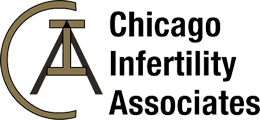Contact Us
Personalized care for infertile couples
This is a placeholder for the Yext Knolwedge Tags. This message will not appear on the live site, but only within the editor. The Yext Knowledge Tags are successfully installed and will be added to the website.
Bolingbrook, IL
Fertility Challenges
Age and Fertility
Unlike generations before us, women now have several options, and many choose to delay starting a family until their 30’s and 40’s. While this is an alternative, it also presents challenges as fertility significantly declines with age. Therefore, it may take a longer time and require more medical intervention before she conceives.
It is recommended that women seek treatment promptly if there are possible contributing factors such as endometriosis, fibroids, or irregular periods. Women without a specific problem who are or over 35, should seek fertility treatment if they have not conceived after six months of unprotected intercourse.
Besides evaluating general reproductive health, a woman’s ovarian reserve (number and health of remaining eggs in the ovaries) can be evaluated as well. Each woman is born with a finite number of eggs that decline over time, and tests can determine the potential remaining reserve. Chicago Infertility Associates will explain specific numbers and thresholds, as each lab may have different levels.
One commonly used test is the FSH (Follicle-stimulating hormone) test done on day two or three of the menstrual cycle. If the result is evaluated, it indicates that conception will be difficult with in vitro fertilization and the risk of miscarriage may increase.
Another test, the Clomiphene Citrate Challenge Test, is also used and the FSH and estradiol levels are tested on day three, clomiphene pills are taken day five to nine, and another FSH level is taken on day ten. Elevated levels of FSH levels on either day three or day ten again will indicate that conception will be difficult.
There is no way to reverse the effects of the aging process on eggs, but treatments such as ovulation induction and IVF can increase the chances of a successful pregnancy. For those whose ovarian reserve shows that conception may be difficult, alternatives include donor eggs or adoption.
PCOS (Polycystic Ovarian Syndrome)
PCOS is an endocrine condition in women that may be characterized by an unusually high level of male hormones, irregular menstrual cycles, and multicystic ovaries. About one in ten women have the condition, and it may run in families.
Women with PCOS can have higher levels of insulin in their bodies which in turn causes higher levels of androgens (male hormones) to be produced. The higher levels of androgens can cause the following symptoms:
- Irregular menstrual cycles
- Inconsistent or lack of ovulation
- Numerous cysts on the ovaries
- High blood pressure and cholesterol
- Acne
- Elevated insulin levels
- Infertility
- Excess hair on the face and body
- Thinning of the scalp hair (alopecia)
- Excess weight (usually around the middle)
PCOS is thought of as one of the most common reasons for infertility in females. In women without PCOS, many follicles each month will grow, but only one will become dominant and fully mature to release an egg. If the egg is not fertilized, the progesterone, produced by the corpus luteum left after ovulation declines and menstruation occurs.
In women with PCOS, however, many follicles will also grow but, due to insufficient hormone levels, none of the follicles will fully mature and therefore no egg is released.
This causes many smaller, immature follicles that continue to produce estrogen and builds a thicker endometrial lining.
Since no egg is released and no progesterone made, the cycles continue and bleeding becomes irregular as the estrogen levels and not high enough to maintain the thickening endometrial lining. Since no progesterone results, the periods may vary in length and duration.
While there is no cure for PCOS, it can be managed with medications for both the hormonal aspects as well as physical aspects. Chicago Infertility Associates are experts in PCOS and can provide a personalized treatment plan as well as advanced treatment options such as ovulation induction or IVF.
If you suspect that you may have PCOS or are experiencing the symptoms above, please contact us so we can work with you to help you realize your dreams of starting a family. Call
us
to learn more about fertility challenges.
Are You Facing Fertility Challenges?
Call us today for FREE consultation
(630) 759-2966
(630) 759-2966
,
This is a placeholder for the Yext Knolwedge Tags. This message will not appear on the live site, but only within the editor. The Yext Knowledge Tags are successfully installed and will be added to the website.
This is a placeholder for the Yext Knolwedge Tags. This message will not appear on the live site, but only within the editor. The Yext Knowledge Tags are successfully installed and will be added to the website.
This is a placeholder for the Yext Knolwedge Tags. This message will not appear on the live site, but only within the editor. The Yext Knowledge Tags are successfully installed and will be added to the website.
HOURS
By Appointment Only
Hi. Do you need any help?
Privacy Policy
| Do Not Share My Information
| Conditions of Use
| Notice and Take Down Policy
| Website Accessibility Policy
© 2024
The content on this website is owned by us and our licensors. Do not copy any content (including images) without our consent.

Share On: